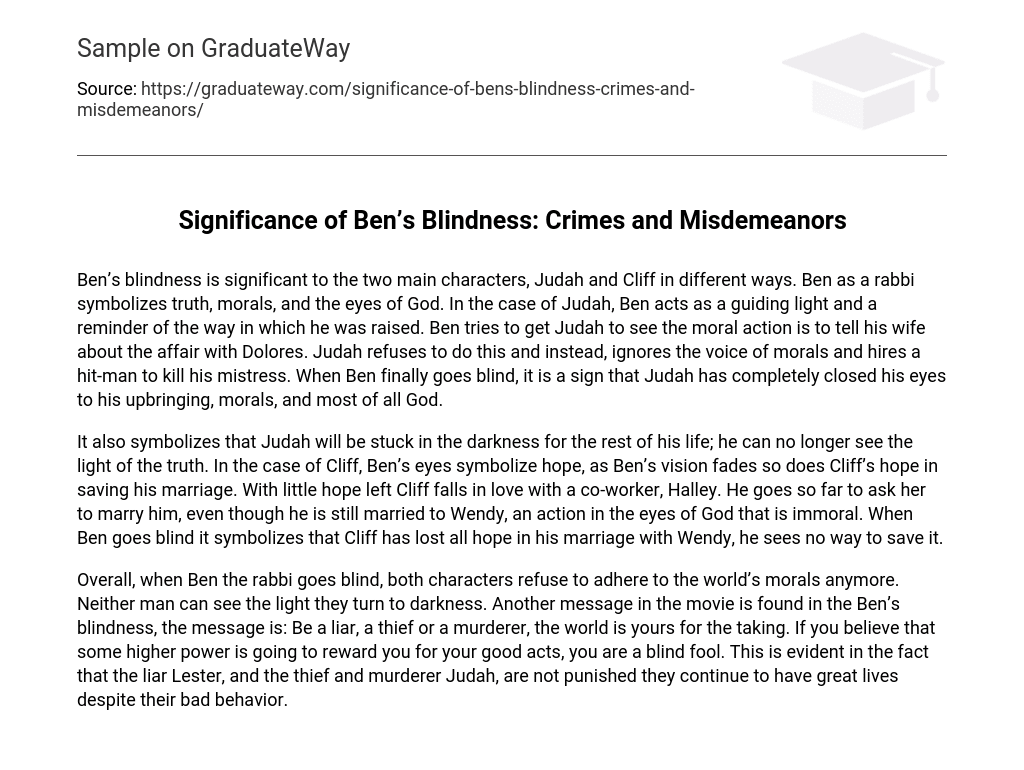Ben’s blindness holds significant meaning for two main characters, Judah and Cliff, but in different ways. As a rabbi, Ben serves as a symbol of truth, morals, and God’s watchful eyes. For Judah, Ben serves as a guiding force, reminding him of his upbringing and what is morally right. Ben urges Judah to confess his affair with Dolores to his wife as the moral course of action. However, Judah disregards Ben’s advice and chooses to silence his mistress by hiring a hit-man instead. When Ben eventually becomes blind, it signifies that Judah has completely turned his back on his upbringing, morals, and most importantly, God.
The text suggests that Judah will remain in darkness forever, unable to perceive the truth. Similarly, Cliff’s dwindling hope in salvaging his marriage is reflected in the fading vision of Ben’s eyes. Driven by despair, Cliff becomes enamored with a colleague named Halley, to the extent of proposing marriage, despite still being legally bound to Wendy. This action is deemed immoral by God. Consequently, Ben’s blindness serves as a symbol of Cliff’s complete loss of hope in his marriage to Wendy, as he sees no possibility for its redemption.
When Ben, the rabbi, loses his sight, both characters reject societal norms. They are unable to perceive the light and are consumed by darkness. Ben’s blindness conveys a message: one can possess deception, theft, or murder and still conquer the world. Believing in divine rewards for virtuous acts is considered foolish. This is evident as Lester, the liar, and Judah, the thief and murderer, continue to flourish without facing consequences for their immoral actions.





